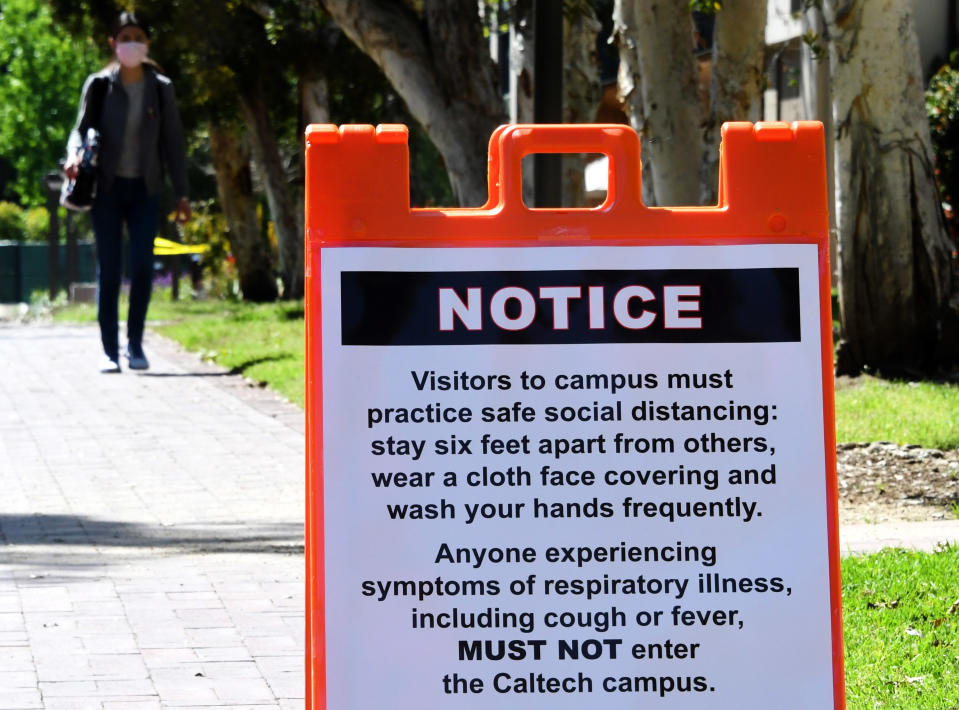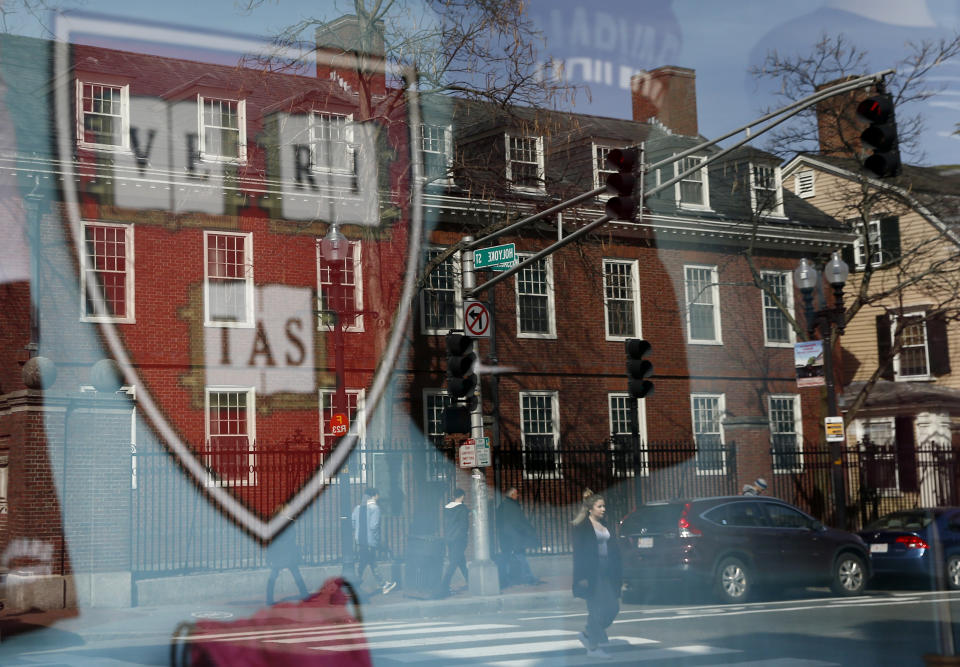Fed considers throwing universities a lifeline as furloughs begin
Colleges and universities across the country are turning to the Federal Reserve for help as campuses emptied out by the novel coronavirus force the nation’s highest educational institutions — and in many cases, health care providers — to furlough staff.
With higher expenses of moving classes online and refunds for unused housing and dining, universities like the University of Kentucky and Johns Hopkins University have announced intentions to furlough staff and reductions or stoppages in retirement contributions.
In Ann Arbor, the University of Michigan has launched voluntary staff furloughs, projecting losses of between $400 million to $1 billion through the end of the 2020 calendar year.
Universities with substantial medical resources have taken a particularly hard hit. Washington University in St. Louis has shifted nearly all of its operations to COVID-19 patient care, but allocating resources away from revenue-making clinics, combined with unique medical care costs associated with the coronavirus, will lead to a $150 million revenue loss for the university.
“We do not know what recovery will look like, or when it might happen,” Washington University Chancellor Andrew Martin wrote Monday.

With colleges expected to burn through the $6.2 billion of support appropriated through the over $2 trillion CARES Act, the American Council on Education (ACE) is calling on the nation’s central bank to expand its forthcoming Main Street Lending Program to cover nonprofits like colleges and universities.
The ACE, which represents more than 1,700 colleges and universities, sent a letter to the Fed on April 16 asking the central bank to provide low-cost loans to alleviate the “major cash flow crisis” facing higher education.
The Fed appears to be listening.
Federal Reserve Bank of Philadelphia President Patrick Harker told Yahoo Finance April 17 that as the former president of the University of Delaware, he acknowledges the “significant” challenges” faced by universities.
“I worry a lot about that and so that's another area of where we're thinking a lot about what, if anything we could do,” Harker said.
Main Street Lending
ACE director of government relations Sarah Spreitzer told Yahoo Finance that colleges are scrambling to find help, including from the Fed.
“We’ve had interest from our member institutions,” Spreitzer said.
The Fed announced April 9 that its Main Street Lending Facility would offer 4-year loans of at least $1 million to businesses with up to 10,000 employees, serving firms that are larger than the small businesses targeted under the Paycheck Protection Program.
But as announced, it was unclear if the program covered nonprofits. In addition to a $2.5 billion revenue cap on eligibility, the facility also imposes an earnings-based leverage test that would likely exclude many nonprofits that do not operate with positive EBITDA.
A spokesperson for the University of Kentucky told Yahoo Finance that the university had looked at the program but determined that it is not eligible as-is.
The ACE has asked the Fed to clarify whether institutions of higher education will be eligible for the program, recommending that the central bank also loosen its calculation of the 10,000 employee mark to exclude any student workers. Leading House Democrats Nancy Pelosi and Maxine Waters have publicly called on the Fed to expand the facility to cover universities.
Atlanta Fed President Raphael Bostic told Yahoo Finance April 14 that it was possible that the Fed could “restructure or provide carve-outs” in its programs to cover “important activities” provided by nonprofits.
The Fed still has yet to launch the program.
The well-endowed
The CARES Act passed about a month ago attempted to throw a lifeline to the nation’s higher education institutions through a $12.6 billion pot. Half of the funds cover direct emergency aid to students and the other half covers the institutions themselves for “any costs associated with significant changes to the delivery of instruction due to the coronavirus.” The Department of Education opened its doors to the institution-facing relief on Tuesday.
The ACE says the $6.2 billion of direct aid to institutions is “woefully inadequate” and estimated revenue loss of $23 billion if enrollment for the coming academic year drops by 15%.
There’s also the distributional challenge of making sure the emergency funds are not absorbed by the most enriched schools.

Harvard University faced public backlash on the news that it would receive $8.7 million in CARES Act aid, raising questions over why a university with a $49 billion endowment fund needed help. The university, which had tapped credit markets for about $1 billion two weeks earlier, later clarified that it would not accept funds from the CARES Act. Harvard also said it had not applied for or requested the funds.
Endowment funds can support short-term financing needs, but the funds are usually earmarked for specific projects and don’t allow for full flexibility on meeting emergency situations like the coronavirus-induced shutdown.
Plus, endowment funds may have taken losses amid market turbulence over the last two months. Johns Hopkins said its $6.3 billion fund lost as much as $350 million as the S&P 500 fell as deep as 34% from its peak.
Smaller colleges that have smaller endowment funds or none at all have had to turn to dramatic restructuring to survive.
The Vermont State Colleges System on April 17 cited conditions “like nothing we have ever experienced” in announcing the closure of Northern Vermont University. Responding to criticism of the decision, Chancellor Jeb Spaulding said Wednesday that it was backing off of that decision but warned that financing through COVID-19 was “not sustainable” in its existing form.
“It cannot continue for long,” Spaulding said.
Brian Cheung is a reporter covering the Fed, economics, and banking for Yahoo Finance. You can follow him on Twitter @bcheungz.
Philadelphia Fed's Harker: U.S. economy could contract by 5% in 2020
Richmond Fed's Barkin: Unemployment rate could soar to high teens
IMF: 'The Great Lockdown' to be worst recession since Great Depression
Atlanta Fed's Bostic: Economy could 'turn on again' in the third quarter
A glossary of the Federal Reserve's full arsenal of 'bazookas'
Read the latest financial and business news from Yahoo Finance
Follow Yahoo Finance on Twitter, Facebook, Instagram, Flipboard, SmartNews, LinkedIn, YouTube, and reddit.
